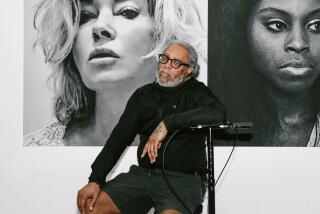Etude of life
WRITING about music is like dancing about architecture, or so the saying goes. Sometimes attributed to Frank Zappa, other times to Elvis Costello, Martin Mull or Laurie Anderson, the quote is usually intended to convey the futility of such an endeavor, if not the downright silliness of even attempting it. But Glenn Kurtz’s graceful memoir, “Practicing: A Musician’s Return to Music,” turns the expression on its head, giving it a different meaning -- that one art form can cross-pollinate another -- and inspiring a lovely, unique book.
Kurtz plays the guitar, but don’t expect any tell-all of some cool ax man’s sex, drugs and rock ‘n’ roll past. This book’s musical equivalent is not the electric shredding of Fender strings pumped through stacks of Marshall amplifiers in a stadium but, rather, the lush tones of an acoustic guitar playing an etude by Fernando Sor to a small but appreciative crowd.
Kurtz picked up the guitar as a kid in a music-loving family, became something of a local prodigy at his Long Island music school and went on to play on Merv Griffin’s TV show, even backing jazz great Dizzy Gillespie once before graduating from the New England Conservatory-Tufts University double degree program. Motivating the young Kurtz is the dream of reinventing classical guitar, as if by his fervency alone he can push it from the margins of popular interest to center stage -- a feat not even accomplished by the late Spanish guitarist Andres Segovia, perhaps the only artist of the form ever to reach anything resembling widespread celebrity.
“Practicing” reads like a love story of sorts: Boy meets guitar. Boy loves guitar. Guitar breaks boy’s heart or, more precisely, the ordinariness of a working musician’s life -- of bad-paying gigs, squabbles with fellow players and playing to drunks who’d just as soon hear a good Billy Joel cover as a Bach suite finely executed -- does it. “I’d just imagined the artist’s life naively, childishly, with too much longing, too much poetry and innocence and purity,” Kurtz writes. “The guitar had been the instrument of my dreams. Now the dream was over.”
Boy leaves guitar. Were the story to end here, this book would be a tragedy, but after nearly a decade boy returns to guitar, and although he has lost the chops he had in his youth, he finds his love of the guitar again in a way he never could have appreciated before.
Although Kurtz is writing about a unique musical path, his journey speaks eloquently to the heart of anyone who has ever desperately yearned to achieve something and felt the sting of disappointment. “Everyone who gives up a serious childhood dream -- of becoming an artist, a doctor, an engineer, an athlete -- lives the rest of their life with a sense of loss, with nagging what ifs,” he writes. “Is that time and effort, that talent and ambition, truly wasted?”
To explore this central idea, Kurtz weaves the chronology of his bittersweet love story with what is essentially a long meditation on one session of practicing his classical guitar. The instrument, fashioned from wood taken from a church door in Spain, provides a fertile metaphor. Given that Kurtz no longer aspires to be a professional musician, what then is practice but rich devotion, a spiritual effort that has no end other than itself? “My hands are not as flexible, and I’ve lost so much time not practicing,” he writes. “But each day now when I sit down, I try to give a performance, opening myself over and over again to what I love the most, knowing each time that I will have to let it go. To play better now means learning to continue, living through what slips away.”
After abandoning the dream of being a professional musician, Kurtz pursued academics, earning a PhD in German studies and comparative literature from Stanford. Certainly, those years were not wasted; Kurtz, showing the broad knowledge and meticulous attention to detail characteristic of an academic, educates the reader about the history of the guitar and considers philosophic questions on the nature of art and what purpose the artist can serve in society. On every page, Kurtz’s desire to inform and inspire is evident as he tells his story.
Ironically, this book about music ends up being quiet at its heart. Maybe too quiet for some readers who have been conditioned by popular trends to expect a memoir to be the literary equivalent of “The Jerry Springer Show” (or, if more tastefully done, “The Oprah Winfrey Show”). “Practicing” doesn’t offer car chases. No one shoots heroin. There’s no incest, abuse or psychopathology. The author doesn’t splay family dysfunction for public analysis. (The earnest Kurtz doesn’t even connect in the one moment when he might give a chaste kiss to a stage manager.)
Yet, in its way, “Practicing” is a fantastic example of what memoir as a literary form can best deliver: a person delving honestly, profoundly and fearlessly into one aspect of life, not necessarily coming up with answers so much as struggling in the face of life’s big questions. The core of memoir is a supposition about the unity of human experience. It is the arc of the writer moving into deeper levels of self-understanding and awareness. Magically, although it is a personal journey, it becomes universal, elevating all in the process.
More to Read
Sign up for our Book Club newsletter
Get the latest news, events and more from the Los Angeles Times Book Club, and help us get L.A. reading and talking.
You may occasionally receive promotional content from the Los Angeles Times.







